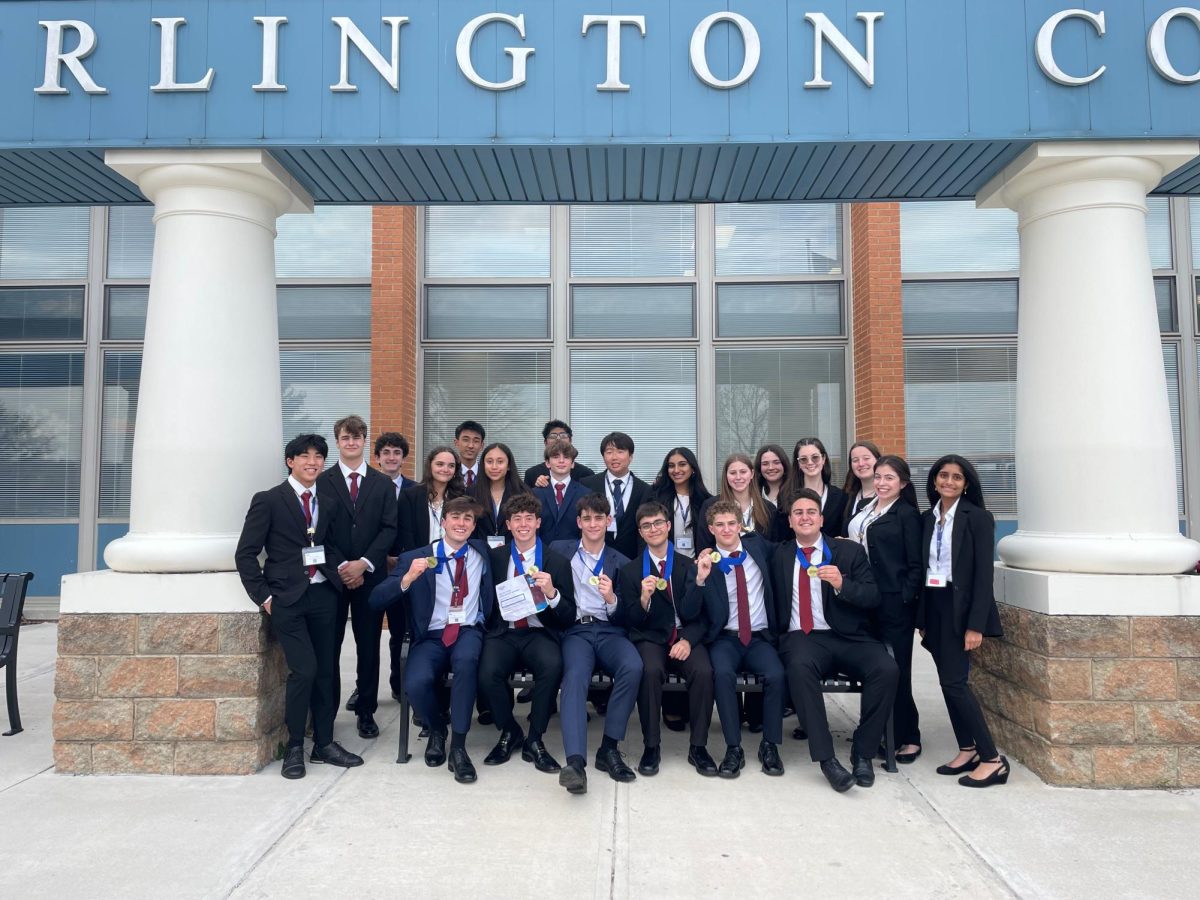‘24
In the state of New Jersey, teenagers aged 16 and older may choose to work up to 40 hours per week while 14- and 15-year-olds may choose to work up to 18 hours per week outside of school hours (up to 3 hours per day). Out of a sample of the IHHS student population, 45.9% of students currently have a job and 24.3% had a job over the summer. Students who work have the opportunity to learn money management skills first-hand at a younger age. Managing earnings can set up lifelong financial habits – for better or worse.
There are several classes available to IHHS students to better learn how to take care of their finances. These classes include Accounting 1 CPE, Accounting 2 CPE, Entrepreneurship CPE, AP Economics, Principles of Finance, and Financial Literacy CP. Financial Literacy is a 2.5 credit course that is required for all students in New Jersey to graduate high school. The course covers basic budgeting, saving, opening checking accounts, taking care of checking accounts, using credit cards, and investing. Mrs. Greene, Financial Literacy, Computer Anatomy, Digital Media, and Computer Science Principles teacher, comments, “I hope [my financial literacy students] take away some knowledge about how to manage their money so they’re not just throwing it out there. As you guys get older and get out of high school, you’re going to be bombarded with credit card offers, so hopefully you’ll think about it twice before opening a card or account.”
Mrs. Greene recommends beginning to save up money in order to form a healthy relationship with money: “Whether or not you work, you’re always getting a little bit of money from birthdays or holidays. Having a plan to save, like in a piggy bank, just saving a little bit of your birthday money or money from the holidays or money from chores or babysitting, having a job, saving a little bit and a little bit will add up and help you see how money does add up in the end.”
Mr. Murphy previously worked on the New York Stock Exchange and now teaches AP Economics and Principles of Finance, a course exclusively available to the International Studies & Business UP (ISB UP). Mr. Murphy agrees with Mrs. Greene, “[…] if you’re earning a paycheck and working, my suggestion would be that a percentage of your paycheck goes into savings automatically – it doesn’t go into your checking account or debit card where you can transact on it. This way, at least there’s one small hurdle in between. You’ll have to transfer it in between savings and checking to get access to it. Something to make you think.”
The Principles of Finance course covers the WISE financial literacy curriculum, just as the standard Financial Literacy CP course does, and basic economics concepts. Mr. Murphy describes the class, “In Principles of Finance we spend a lot of time on financial things, so we’ve been more recently going over a lot more specifics on what stocks are, what types of stocks there are, how we can invest in different sectors, and we’re now going over what bonds are. […] we go over how markets are intertwined and the global connecting of markets – which is huge now. […] It’s a more financial class than an economics class. It’s more in-depth than a financial literacy class would be though.”
AP Economics covers global spending and production, global policies’ impacts, economic fluctuations, unemployment, inflation, the stock market, and some personal finances more in depth. When asked what he hopes his AP Economics students take away from the class, he said, “I think AP Econ gives them a really broad and good understanding of how the economy works. At the same level, it gives us all a little bit of insight into how we think about the daily choices we make on consumption, as producers, as an owner of a business. I think those are valuable because, quite honestly, a lot of you guys are not gonna work for other people, you’re gonna run your own businesses. Whether it’s you alone or a small group, to have that core of understanding of how basic economic principles work is very valuable.”
Although teens can’t invest in the stock market or buy government bonds yet, they can participate in stock market games using the software Market Watch, which the stock market club and ISB UP invest in. Mr. Murphy comments, “There is a big following among high school kids of financial investing, but actually doing it – the answer is no for anyone under 18. […] Yes [students can invest in other ways]. What has become very popular is things like sneakers and play cards. There’s all kinds of collectibles that have become popular.” Students interested in joining the stock market club should contact Mr. Murphy at [email protected].
Money management is an important part of growing up. Take the time to learn about spending and saving patterns in high school before moving into life beyond Oakland. Opt to take advantage of the course offerings available at IHHS to learn more.





